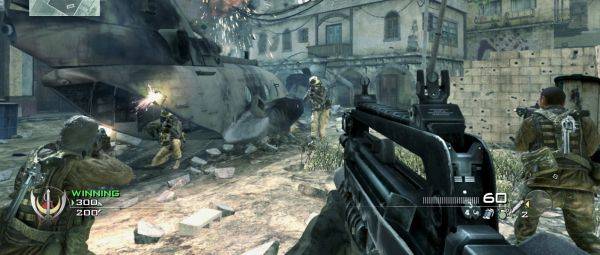From: AP , June 28, 2011 8:06AM http://www.news.com.au/technology/gaming/grand-theft-auto-no-different-to-cinderella-rules-us-supreme-court/story-e6frfrt9-1226083215803
Think Mortal Kombat is gruesome? The bad queen in Snow White had to wear red hot shoes...
RIPPING out your video game opponents' spine is akin to Hansel and Gretel baking their captor in an oven. That's the message sent to gamers by the US Supreme Court yesterday, after it refused to let California regulate the sale or rental of violent video games to children. California's 2005 law would have prohibited anyone under 18 from buying or renting games that give players the option of "killing, maiming, dismembering, or sexually assaulting an image of a human being". That means that children would have needed an adult to get games like Postal 2, the first-person shooter by developer Running With Scissors that includes the ability to light unarmed bystanders on fire. However, governments do not have the power to "restrict the ideas to which children may be exposed", the court ruled, despite complaints about graphic violence.
On a 7-2 vote, it upheld a federal appeals court decision to throw out the state's ban on the sale or rental of violent video games to minors, saying the law violated minors' rights under the First Amendment. "No doubt a state possesses legitimate power to protect children from harm," said Justice Antonin Scalia, who wrote the majority opinion. "But that does not include a free-floating power to restrict the ideas to which children may be exposed." The California law would have prohibited the sale or rental of violent games to anyone under 18. Retailers who violated the act would have been fined up to $US1000 for each infraction.
More than 46 million American households have at least one video-game system, with the industry bringing in at least $US18 billion in 2010. Unlike depictions of "sexual conduct", Justice Scalia said there is no tradition in the United States of restricting children's access to depictions of violence, pointing out the violence in the original depiction of many popular children's fairy tales like Hansel and Gretel, Cinderella and Snow White. Hansel and Gretel kill their captor by baking her in an oven, Cinderella's evil stepsisters have their eyes pecked out by doves and the evil queen in Snow White is forced to wear red hot slippers and dance until she is dead, Justice Scalia said. "Certainly the books we give children to read - or read to them when they are younger - contain no shortage of gore," Justice Scalia added.
And there is no proof that violent video games cause harm to children, or any more harm than another other form of entertainment, he said. One doctor "admits that the same effects have been found when children watch cartoons starring Bugs Bunny or the Road Runner or when they play video games like Sonic the Hedgehog that are rated 'E' or even when they 'view a picture of a gun", Justice Scalia said.
But Justice Clarence Thomas, who dissented from the decision along with Justice Stephen Breyer, said the majority read something into the First Amendment that isn't there. "The practices and beliefs of the founding generation establish that "the freedom of speech", as originally understood, does not include a right to speak to minors (or a right of minors to access speech) without going through the minors' parents or guardians," Justice Thomas wrote. Justice Breyer said it made no sense to legally block children's access to pornography yet allow them to buy or rent brutally violent video games. "What sense does it make to forbid selling to a 13-year-old boy a magazine with an image of a nude woman, while protecting the sale to that 13-year-old of an interactive video game in which he actively, but virtually, binds and gags the woman, then tortures and kills her?" Justice Breyer said.
Video games, said Justice Scalia's majority opinion, fall into the same category as books, plays and movies as entertainment that "communicates ideas - and even social messages" deserving of First Amendment free-speech protection. And non-obscene speech "cannot be suppressed solely to protect the young from ideas or images that a legislative body thinks unsuitable for them", he said. Tim Winter, president of the Parents Television Council, said the decision created a constitutionally authorised "end-run on parental authority". "I wonder what other First Amendment right does a child have against their parents' wishes?" he said. "Does a child now have a constitutional right to bear arms if their parent doesn't want them to buy a gun?"
Read more: http://www.news.com.au/technology/gaming/grand-theft-auto-no-different-to-cinderella-rules-us-supreme-court/story-e6frfrt9-1226083215803#ixzz1QWSVTccX




